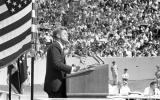Classic Essays from the Archives
Herbert Hoover Describes the Ordeal of Woodrow Wilson | June 1958, Vol 9, No 4
By Herbert HooverThe great tragedy of the twenty-eighth President as witnessed by his loyal lieutenant, the thirty-first.
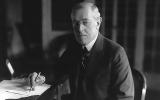
Ike's Son Remembers George S. Patton Jr. | Summer 2012, Vol 62, No 2
By John D. EisenhowerThe author, who once served under General Patton and whose father, Dwight D. Eisenhower, was Patton's commanding officer, shares his memories of "Ol' Blood and Guts."
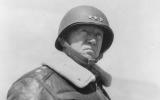
Growing Up Colored | Summer 2012, Summer 2025, Vol 70, No 3
By Henry Louis Gates Jr.The noted writer and educator tells of his boyhood in the West Virginia town of Piedmont, where African Americans were second-class citizens, but family pride ran deep.
Growing Up Colored | Summer 2012, Summer 2025, Vol 62, No 2
By Henry Louis Gates Jr.The noted writer and educator tells of his boyhood in the West Virginia town of Piedmont, where African Americans were second-class citizens, but family pride ran deep.
A Yankee Among The War Lords | October 1970, Vol 21, No 6
By Barbara W. TuchmanFirst of the Three Parts from STILWELL THE AMERICAN EXPERIENCE IN CHINA 1911-1945

The Man of the Century | May/June 1994, Vol 45, No 3
By Arthur Schlesinger Jr.Of all the Allied leaders, argues FDR's biographer, only Roosevelt saw clearly the shape of the new world they were fighting to create.

Range Practice | Februrary 1968, Summer 2025, Vol 19, No 2
By Dean AchesonOur former Secretary of State recalls his service fifty years ago in the Connecticut National Guard—asthmatic horses, a ubiquitous major, and a memorable shooting practice.
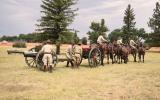
Range Practice | Februrary 1968, Summer 2025, Vol 70, No 3
By Dean AchesonOur former Secretary of State recalls his service fifty years ago in the Connecticut National Guard—asthmatic horses, a ubiquitous major, and a memorable shooting practice.

Searching for “Shenandoah” | Winter 2022, Summer 2025, Vol 67, No 1
By Bruce WatsonIt's one of the oldest folk ballads in our national songbook, but where did it come from? The answer is complex, multi-layered, American.

Searching for “Shenandoah” | Winter 2022, Summer 2025, Vol 70, No 3
By Bruce WatsonIt's one of the oldest folk ballads in our national songbook, but where did it come from? The answer is complex, multi-layered, American.

Lincoln As Commander in Chief | Winter 2009, Summer 2025, Vol 58, No 6
By James M. McPhersonEven though he had no military training, Lincoln quickly rose to become one of America’s most talented commanders.
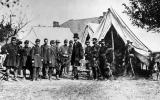
Lincoln As Commander in Chief | Winter 2009, Summer 2025, Vol 70, No 3
By James M. McPhersonEven though he had no military training, Lincoln quickly rose to become one of America’s most talented commanders.

Finding the Real Jamestown | Winter 2008, Summer 2025, Vol 58, No 1
By William M. KelsoThe archaeologist who discovered the real Jamestown debunks myths, and answers age-old mysteries about North America's first successful English colony.
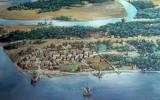
Finding the Real Jamestown | Winter 2008, Summer 2025, Vol 70, No 3
By William M. KelsoThe archaeologist who discovered the real Jamestown debunks myths, and answers age-old mysteries about North America's first successful English colony.

FDR and His Women | March 2003, Summer 2025, Vol 70, No 3
By Ellen FeldmanA novelist who has just spent several years studying Eleanor Roosevelt, Lucy Rutherfurd, and Missy LeHand tells a moving story of love: public and private, given and withheld.

FDR and His Women | March 2003, Summer 2025, Vol 54, No 1
By Ellen FeldmanA novelist who has just spent several years studying Eleanor Roosevelt, Lucy Rutherfurd, and Missy LeHand tells a moving story of love: public and private, given and withheld.

Two Intimate Enemies | September 2000, Summer 2025, Vol 70, No 3
By Joseph J. EllisWhen John Adams was elected president, and Thomas Jefferson as vice president, each came to see the other as a traitor. Out of their enmity grew our modern political system.
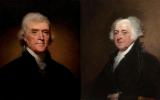
Two Intimate Enemies | September 2000, Summer 2025, Vol 51, No 5
By Joseph J. EllisWhen John Adams was elected president, and Thomas Jefferson as vice president, each came to see the other as a traitor. Out of their enmity grew our modern political system.

“Medic!” | November 1997, Vol 48, No 7
By Stephen E. AmbroseIn a hard war, theirs may have been the hardest job of all. Along with Army doctors and nurses, they worked something very close to a miracle in the European theater.

The Conversion of Harry Truman | November 1991, Vol 42, No 7
By William E. LeuchtenburgA child of the South's "Lost Cause," Truman broke with his convictions to make civil rights a concern of the national government for the first time since Reconstruction. In so doing, he changed the nation forever.
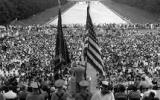
The Slave Who Sued for Freedom | March 1990, Vol 41, No 2
By Jon SwanWhile the American Revolution was still being fought, Mum Bett declared that the new nation’s principle of liberty must extend to her, too. It took 80 years and a far-more-terrible war to confirm the rights that she had demanded.
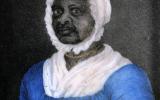
"I Had Prayed to God That This Thing Was Fiction…" | February 1990, Vol 41, No 1
By William WilsonHe didn’t want the job, but felt he should do it. For the first time, the soldier who tracked down the My Lai story for the office of the inspector general in 1969 tells what it was like to do some of this era’s grimmest detective work.
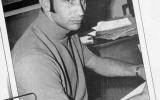
A Few Parchment Pages Two Hundred Years Later | May/June 1987, Summer 2025, Vol 38, No 4
By Richard B. MorrisThe framers of the Constitution were proud of what they had done but might be astonished that their words still carry so much weight. A distinguished scholar tells us how the great charter has survived and flourished.

A Few Parchment Pages Two Hundred Years Later | May/June 1987, Summer 2025, Vol 70, No 3
By Richard B. MorrisThe framers of the Constitution were proud of what they had done but might be astonished that their words still carry so much weight. A distinguished scholar tells us how the great charter has survived and flourished.

The Treasure From The Carpentry Shop | December 1979, Vol 31, No 1
By David McCulloughTHE EXTRAORDINARY ORIGINAL DRAWINGS OF THE BROOKLYN BRIDGE
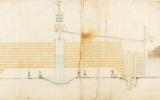
The Day The Civil War Ended | June/July 1978, Vol 29, No 4
By Bruce CattonAt the Gettysburg reunion fifty years after the battle, it was no longer blue and gray. Now it was all gray.
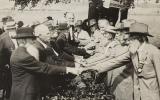
Columbus and Genocide | October 1975, Vol 26, No 6
By Edward T. StoneThe discoverer of the New World was responsible for the annihilation of the peaceful Arawak Indians
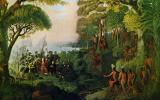
Alice Paul: “I Was Arrested, Of Course…” | February 1974, Summer 2025, Vol 70, No 3
By Robert S. GallagherAn interview with the famed suffragette, Alice Paul
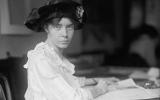
Alice Paul: “I Was Arrested, Of Course…” | February 1974, Summer 2025, Vol 25, No 2
By Robert S. GallagherAn interview with the famed suffragette, Alice Paul

On History | February 1964, Vol 15, No 2
By John F. Kennedy"Americans are united by their history and by a faith in progress, justice, and freedom," writes President Kennedy
